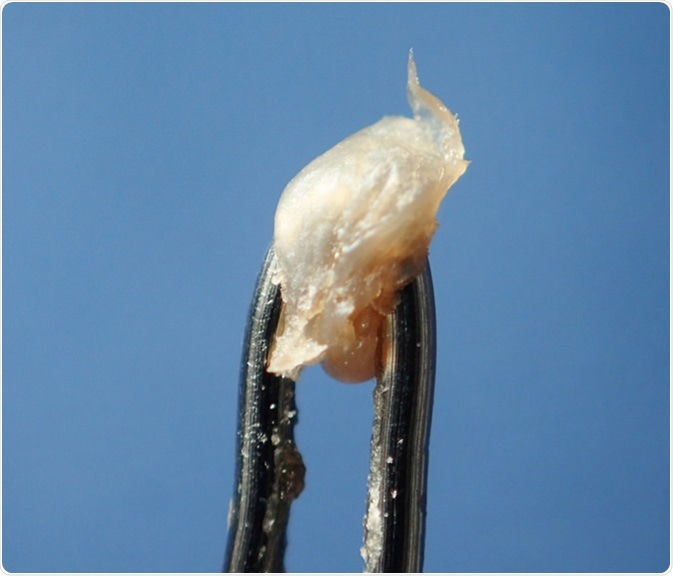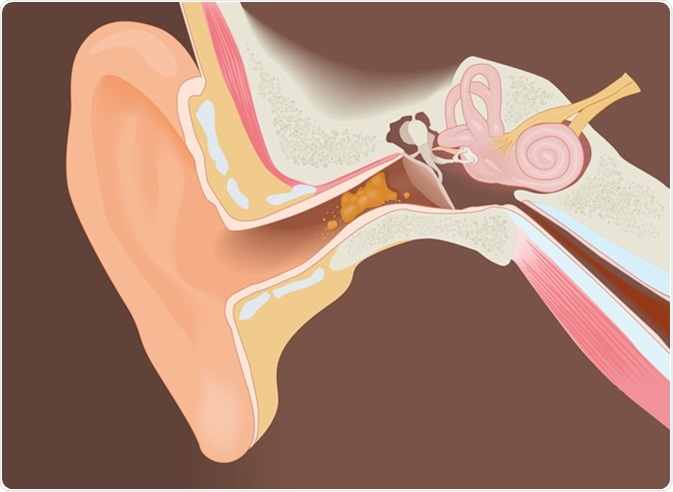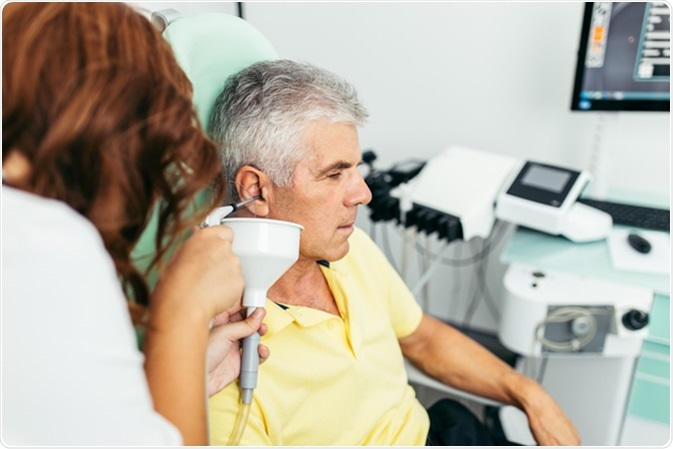Earwax, also known among medical professionals as cerumen, is a substance that plays a functional role inside the ear canal. It helps to protect the ear by trapping dirt before entering the canal and repelling water. As more wax is produced, the existing cerumen usually falls out of the ear naturally.

Earwax on a sewing needle tip. Nickel_Bell / Shutterstock
However, in some cases excessive earwax can block the ear canal and interfere with hearing, as well as increasing the probability of ear infections. As a result, it becomes necessary to treat cerumen impaction, to allow the ear canal to stay open and in optimal function.

Section of the ear with earwax, diagram. Image Credit: struna / Shutterstock
Causes
It is possible for anyone to experience symptoms related to excessive build up of earwax. Some people are more likely to affected, including people who:
- Naturally have a narrow shaped ear canal
- Regularly use ear plugs or hearing aids
- Are elderly
- Have a developmental disability
- Often use cotton swabs or put other materials inside their ear
Symptoms
For people affected by earwax impaction, it is common to experience symptoms such as:
- Earache
- Hearing difficulty
- Tinnitus
- Itchiness of the ear
- Ear discharge
- Vertigo
In addition to these symptoms, untreated cerumen impaction can lead to other complications with more severe outcomes. This includes ear infection, perforated eardrum and pain in the ear.
Treatment
There are three common methods of intervention to treat excessive earwax: irrigation, topical eardrops and manual removal.
Irrigation is the most common method used to removal cerumen by general practitioners. An oral jet irrigator is directed into the ear canal, which loosens and removes earwax. This method is even more effective if the ear is primed with topical eardrops before irrigation. It is not recommended to conduct irrigation in people with abnormalities of the ear canal or a history of ear surgery.

Ear irrigation and earwax removal. - Image Credit: DuxX / Shutterstock
Topical eardrops may be water or oil based and work on the wax inside the ear canal to help soften or dissolve it for easier natural removal. Both types of eardrops have been shown to be more effective than placebo, although neither is more effective than the other.
It is best if a medical professional conducts manual removal of earwax, as it is possible for the earwax to compact further causing greater blockage if individuals attempt to do this themselves. A visualization instrument is needed to navigate the ear canal, in addition to an instrument for removal, such as a loop, spoon or curette.
References
Further Reading
Last Updated: Jun 20, 2019